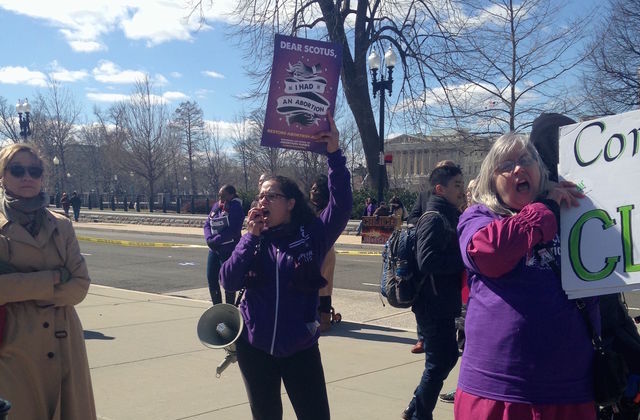Yesterday (January 29), the United States Senate voted on the Pain-Capable Unborn Child Protection Act, a bill that sought to make most abortions performed after twenty weeks of gestation illegal. The bill failed to move forward, falling shy of the 60 votes needed to break a Democratic filibuster, with only 51 Senators voting yes. Senators voted mostly along party lines, with only three Democrats breaking rank to vote yes and two Republicans voting no. It passed in the House in October.
Yamani Hernandez, executive director of the National Network of Abortion Funds, said in an emailed statement:
It was a total waste of government resources, especially as the lives of immigrants, Puerto Ricans and children enrolled in CHIP hang in the balance. Although the Senate did not have enough votes to pass this bill this time, the fact that it went to the floor at all is continued evidence that politicians seek to deprive individuals of their constitutional right to abortion.
[…]
We believe abortion access advocates and supporters of sexual autonomy are united in continuing to hold the line against these attacks, and those of us who are able to vote will remember moments like this at the polls.
Twenty-one states already have laws restricting abortions after twenty weeks. The reasons why women seek abortions at that stage of pregnancy vary, but according to Rewire:
A large share of women seeking abortions late in the second trimester do so because they face dramatically changed life circumstances or were unable to obtain an earlier abortion—a situation that’s increasingly common in states where laws are making abortion more expensive, more time consuming, and more geographically inaccessible.
Women of color tend to bear a disproportionate burden of restrictions on abortion, and young women and poor women are more likely to need abortion care later in pregnancy.
